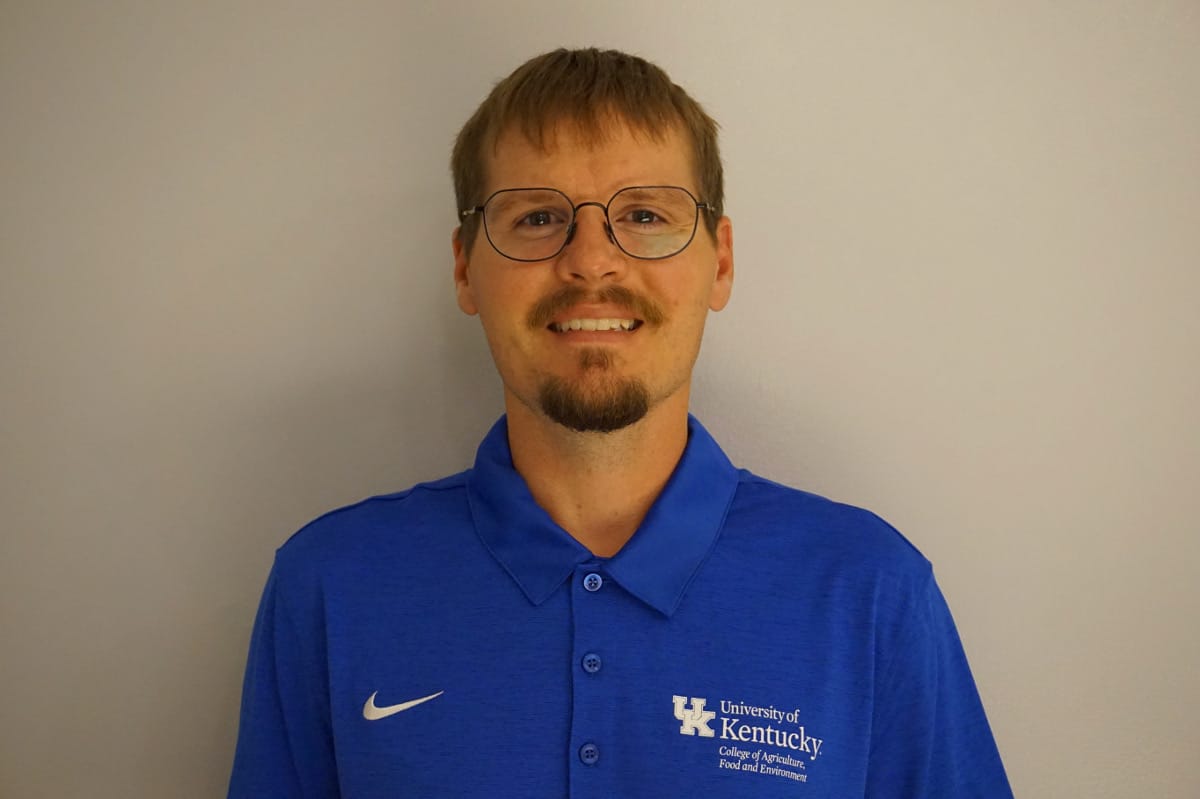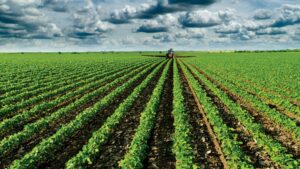Eric Luteyn is pursuing a M.S. as a NSF Research Traineeship Fellow at the University of Kentucky. He earned his B.S. in Plant and Soil Sciences with an Animal Science minor in Fall, 2019. Eric works under the mentorship of Dr. Timothy Phillips in the grass breeding and genetics lab and is documenting the large diversity of forage and seed traits found in Eragrostis tef. He is also working on an interdisciplinary team to solve environmental issues impacting the Appalachian region by testing the use of microalgae as a fertilizer to improve the mine land reclamation process. Prior to obtaining a degree, Eric served in the US Army for over 10 years as a construction supervisor where he planned and executed numerous large-scale projects both in the continental US and abroad.
The work that I do is important because whether we are talking about the work with Eragrostis tef and documenting trait differences between accessions or the work with microalgae fertilizer and the plants response between different treatments, the main goal is to improve productivity in a few areas that need it the most. With teff, I would hope my research could be used to improve breeding programs by providing a guide to selecting germplasms that have reduced lodging potential, increased disease resistance, higher yields, and increased nutrient values.
With microalgae, we could provide a novel solution to improve soil conditions on sites that are no longer fit for plant growth. If we can improve soil conditions on mine land sites in an economically feasible manner, then there is the potential to use this technique in other areas with poor growing conditions.
I was born and raised in Kalamazoo, Michigan, until I was 21. I didn’t grow up around agriculture and at the time knew very little about plant breeding or even the different types of agricultural production systems. It wasn’t until I was overseas and exposed to poor agricultural systems that I really started asking questions about why people in other areas didn’t have as much food as we have in the United States. After the military and while in my undergraduate degree program I worked at the university beef unit, taking care of cattle, and trying to learn as much as I could as a farm hand. I had planned on using what I learned in some capacity to help others. It wasn’t till after I meet grass breeder Dr. Timothy Phillips, that I decided this is how I can contribute to the world.
Teff is an amazing plant with a lot of potential as a grain crop, animal feed, and a living mulch. There is a lot less known about teff then other grasses like corn, rice, wheat, etc. Some people have the goal to improve these economically important crops and that’s great, but for me it’s to study and understand the potential of a less common plant species which could impact parts of the world that have a lot less resources than what we have here in the United States.
Through my research, I can document all the trait differences within the USDA collecting, which can help start breeding populations with desired characteristics that fit the needs of the area for which it will be grown. Teff is a major crop in Ethiopia and the African highlands, by studying how seed is selected and used in these areas, combined with field and greenhouse trials, improved varieties can be developed to promoted increase productivity in these areas.
The idea of using microalgae as a fertilizer started after learning about the toxic post-mining conditions on Appalachian mine land sites. The spoil left behind tend to be compacted with low to no organic matter and tons of toxic heavy metals which can run off or leach out into waterways and pollute ground water. These sites can be barren with low fertility and poor plant growth. This novel fertilizer has the potential to consume heavy metals, improve organic matter content and the fertility of the spoil, which in turn increase water holding capacity and help create conditions conducive to plant growth.
My time in service has taught me so much about myself and the world that I can’t help but be thankful for the experience. Whether it was working as an interdisciplinary team or planning and managing large scale multimillion-dollar engineering project here and overseas, the leadership experience that I gained has been invaluable. With that being said, the one thing that I think has helped me prepare for a career in plant breeding the most is my military experience. Leaving everything that I know behind and being exposed to different cultures, places, people, and events has made me highly adaptable and ready to take on new pursuits.











